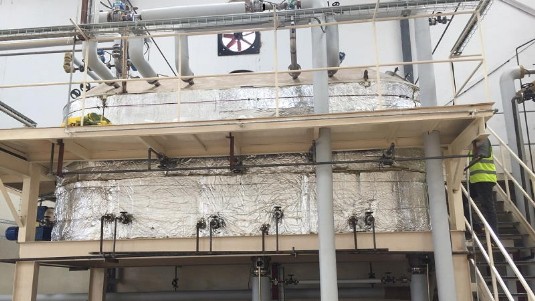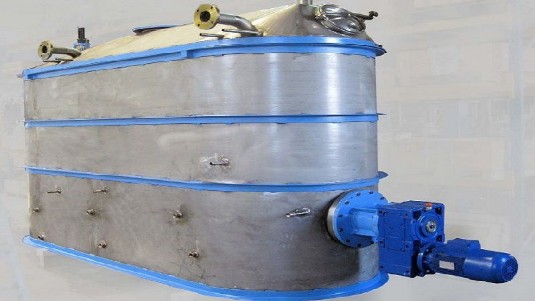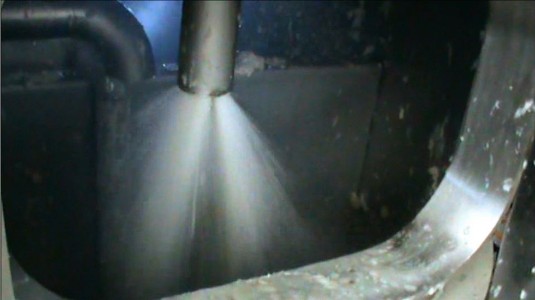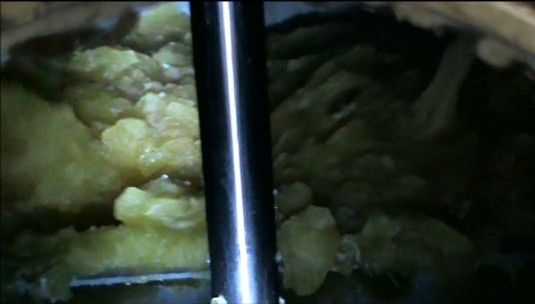SAPONIFICATION PLANTS
The JET has been developed since decades as a tool to trigger the saponification (or neutralization) processes. For historical reasons, notwithstanding its efficiency, the JET has been utilized only in some areas of the world or by certain multi‐national companies.
The main feature of the JET is the immediate start of the reaction in a very small volume, internal to the JET.
Thanks to the energy passed by a small flow of live steam (kinetic and thermal), the pumped reagents (oil blend and alkali) immediately form a stable homogeneous emulsion which flows out the JET.
The emulsion consists of freshly produced soap, oil, alkali, water etc. In such environment the reagents continue to saponify without any additional supply of energy.
In a conventional saponification process the initial reaction is slow, while with the JET such stage is immediately completed and the saponification easily reaches its linear reaction phase.
The JET is a general‐purpose tool that can be used in Semi‐Boiled saponification processes in combination of an Atmospheric Continuous Reactor or a Batch Soap Crutcher as well as in Full‐Boiled saponification plants on top of Kettles. In a conventional saponification plant the use of a too concentrated caustic soda solution (i.e. 50% NaOH) brings to a not homogeneous soap mass. Furthermore such soap tends to be highly viscous and cannot be easily pumped in continuous reactors based on high recirculation processes. These facts determine a lower limit of water content into the neat soap.
In a JET saponification plants, this lower limit can be sensibly reduced thanks to the formation of a stable emulsion in a very small volume.
In addition to this, the Atmospheric Reactor or the Soap Crutcher properly operates with any viscosity of the soap thanks to their design.
In case of Semi‐Boiled (swing) saponification, the JET allows the production of Concentrated or Semi‐Concentrated Soap.
Practically it produces a neat soap with the preferred moisture level, avoiding the addition of process water which would be then expensive to evaporate.
A JET Noodling Plant can be completed with a Drying Plant (Drying and Cooling Section) or with a simpler and more economical Cooling Section based on a Chill‐Rill (Drum‐Flaker). The soap Chill‐Roll option can produce semi‐boiled laundry soap and even toilet soap.




